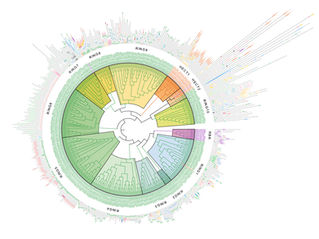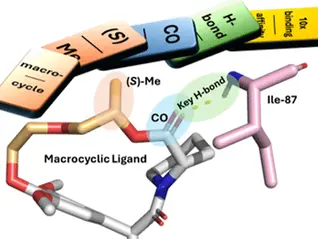Our Vision
As part of Germany’s Clusters4Future initiative, PROXIDRUGS is being funded by the Federal Ministry of Research, Technology and Space since October 2021. The cluster focuses on developing new treatments for diseases with high unmet medical needs by utilizing the new concept of targeted protein degradation. Proximity-inducing drugs can trigger the degradation of disease-relevant proteins in a highly specific manner by directing them towards the cellular recycling system. That will open up new therapeutic options in a broad spectrum of diseases. It is assumed that 80% of proteins that are so far deemed as undruggable may be targeted by this strategy.
PROXIDRUGS aims at improving this novel class of drugs in multiple ways: the strategy comprises the identification of suitable functional subunits for molecule engineering; the directed optimization of pharmacological properties; and the transfer to clinical phases.
In line with this, the cluster interlinks currently 22 partners from academia and industry, covering the entire value chain from basic to translational research.
What We
Stand For
Cutting-edge
science
PROXIDRUGS stands for innovative research on the novel substance class of proximity-induced drugs. It will support commercial drug development for a broad spectrum of indications as well as the development of directly commercializable assays.
Innovation &
tech transfer
The PROXIDRUGS consortium is supported by a professional and tightly engaged innovation and transfer management. PROXIDRUGS also supports spin-off activities and the establishment of sustainable, local partnerships.
A culture
of team work
The consortium unites partners from academia and industry, covering the entire value chain from basic to translational research. Our strong collaborations will drive internationally competitive research projects and boost regional innovation.
Sustainable research culture
The sustainable development of competences and resources as well as the expansion and efficient use of local infrastructure are our central aims.
We commit to the FAIR principles of data management.


Local Innovation Cluster
The establishment of novel active substances, such as proximity-induced drugs, requires an effective integration of diverse pharmaceutical technologies, drug synthesis, the development of new assay systems and basic research into the regulation of ubiquitin-mediated protein degradation. Therefore, the PROXIDRUGS network will promote a unique interdisciplinary collaboration in Germany. This will significantly strengthen the location and create a leading position that will be able to will be reflected in internationally competitive drug development projects.
The Rhine-Main region is traditionally one of Germanys most important pharmaceutical locations. Numerous large pharmaceutical companies operate R&D departments in the region. The consortium is furthermore supported by the Frankfurt-based House of Pharma, the Hessen Trade & Invest GmbH (HTAI) and the Hessen's state offensive LOEWE (Landes-Offensive zur Entwicklung wissenschaftlich-ökonomischer Exzellenz).
Address
Institute of Biochemistry II
University Hospital Building 75
Theodor-Stern-Kai 7
60590 Frankfurt (Main)
Contact
proxidrugs@uni-frankfurt.de
Funded by


is a registered word and device mark in Germany









